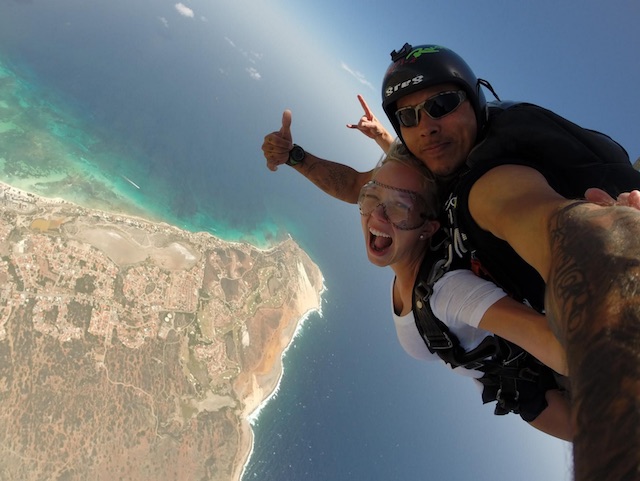My life has been affected by anxiety for as long as I can remember—not my own, but my mother’s.
I remember being a little girl and there being a lot of drama surrounding getting to cheer practice on particular days or to meet friends at certain places that required a trip on the highway. I was not always so sensitive to my mother’s fear of driving because I simply didn’t understand. I remember instead feeling annoyed, frustrated, critical…in the way that a self-centered adolescent who hasn’t yet grasped the immensity of other people’s struggles sometimes does.
Fast forwards a decade later, and I’ve realized I’m becoming my mother—which is a really good thing.
Four years ago, I was driving on the highway back to college and had to stop for a back-up caused by an accident a mile or so ahead of me. After that I remember a flash of light and then nothing until waking up in the back of an ambulance disoriented and asking for my mother and if I was okay. The EMTs and the police officers told me that after I’d stopped for traffic a truck rear-ended me going the 70 mph speed limit+ sending my black Jeep Grand Cherokee spinning into a couple of other cars and finally into a tree. The driver had supposedly been drinking.
I’d kept a safe following distance, all my lights were on, I’d driven within the speed limit, I’d stopped in plenty of time for the person behind me to stop too. Why wasn’t this enough? The fact that I’d done everything I could to keep myself safe and I’d ended up in the back of an ambulance with a totalled car was enough to send my control-freak brain spinning. I’d made a life out of controlling every single detail of my existence and yet this most important thing—my life and when it would end—I realized for the first time was not under my control.
The accident brought me face to face with the fragility of life and the finality and unpredictable nature of death. Ever since then, I can’t merge onto a highway without feeling butterflies in my stomach and when a car stops suddenly in front of me, my eyes immediately dart to my rear-view mirror as I wonder if this is the time I won’t be so lucky.
Everyone deals with fear differently—some people chose to avoid situations that elicit fear while others chose to confront their fears head on.
Neither is any more or less correct than the other. I am a person that is afraid of dying and of losing control who jumps out of airplanes at 12,000 feet, a medical student who has chosen to pursue a career in emergency medicine where I will be surrounded by death and dying more days than not, an arachnophobic who bathes in light-less Dominican showers known to house tarantulas. In psychiatry they call this “flooding”—a behavioral technique involving direct exposure to a maximum intensity real or imagined anxiety-producing stimulus as a means of unlearning the fear.
For some people this would make things infinitely worse, exacerbating the underlying anxiety itself and making life unbearable—but for me, it heals.
For so long, I’ve looked upon the accident with regret, wishing it hadn’t happened. Wishing I hadn’t crashed my car, wishing I didn’t struggle with anxiety because of it, wishing the whiplash hadn’t left me with chronic neck and back pain, wishing I didn’t have to drive white-knuckled past the Camp Perry exit on Rt. 64. But as time’s gone on I’ve found a new emotion to attach to the experience—somehow I’ve become grateful. I’ve wanted to be an emergency physician for much of my life and maybe I needed to confront the inevitable possibility of my own death before I’d be able to confront others’.
Maybe the accident will help me in the emergency department, and as a physician in general, in the way that all of life’s difficulties somehow unknowingly prepare us for what lies ahead. Maybe I will be more empathetic to the fear surrounding the real and perceived death of patients and their families than I would have been able to be otherwise.
We can’t always be happy about the way things turn out, but we can always be grateful. And when we do, somewhere along the way we just might find that life’s biggest hurdles have developed into our greatest gifts.
Author: Jessica Johnson
Editor: Renée Picard
Photo: Author’s Own











Read 2 comments and reply